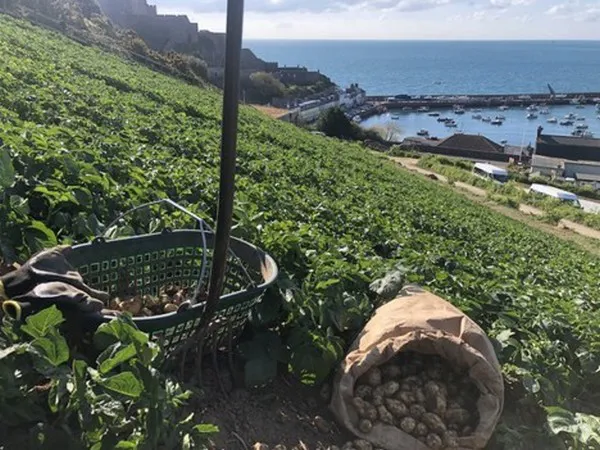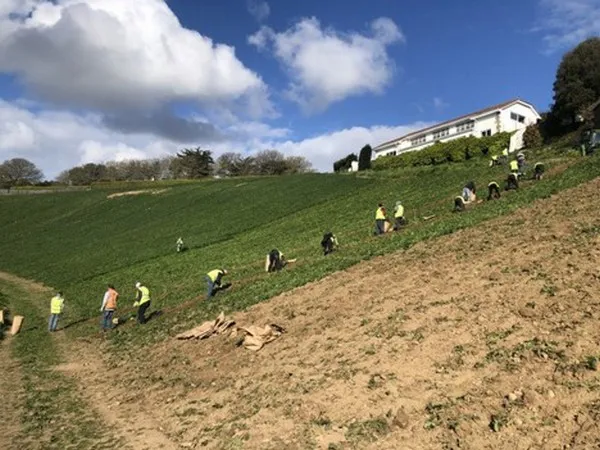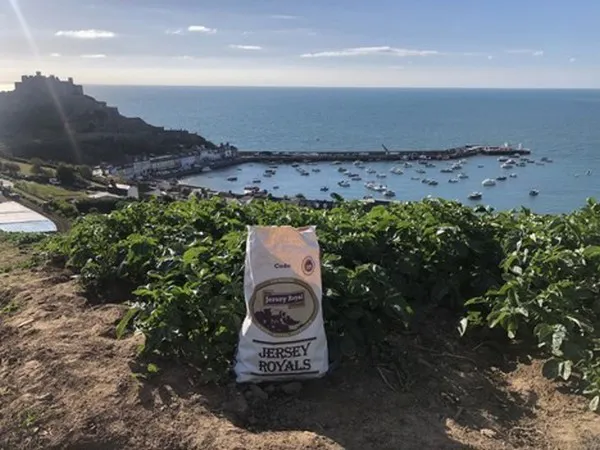It’s that time of year again when UK consumers are looking forward to seeing Jersey Royals on the shelves. At the moment there are just small volumes from the glasshouses and polytunnels going into the wholesale markets, the main crop will be on the supermarket shelves in May.
“There are very small volumes starting to find there way to retailer’s shelves, this will increase as we start the outdoor crop in April, and progress to full volumes in May,” explains Nigel Holliday from The Jersey Royal Company.”

The timing of the season is similar to other years as growing conditions have been relatively good. “We avoided snow, but did have a wet 1st week in January which slightly delayed planting, but since then it has been dry. We could do with a bit more sunshine and warmth as it has been colder than normal and a bit of sunshine would bring on the covered crop.”
Last year was very dry so the rain this week was also welcome, Nigel said it is a bit early to start predicting yield but he expects it to be normal.

“Demand for Jersey Royals is normally good, so we expect the same this year. Everyone is dealing with price inflation, but I think that people who have not been going out, might see Jersey Royals as a treat to cook at home.”
Jersey Royals are grown on steep slopes and planted and harvested by hand, this makes it a very labour intensive job. “Labour has been our biggest challenge over the last 4-5 years, but we do have a good retention rate which is good. We now have up to 12 different nationalities working for us now, with varying abilities to speak English, but we have good liaison people and translators which makes the whole process easier for our workers to settle in.”

The majority of the Jersey Royal crop will go to the UK, but some which are not to the spec of the retailers may go to Europe if there is demand. Also, in an effort to reduce waste, potatoes are sent to the island’s vodka distillers to make Jersey Vodka.
For more information:
Nigel Holliday
The Jersey Royal Company Ltd
Tel: +44 (0) 1534 852 444
nigel.holliday@jerseyroyal.co.uk
www.jerseyroyal.co.uk
